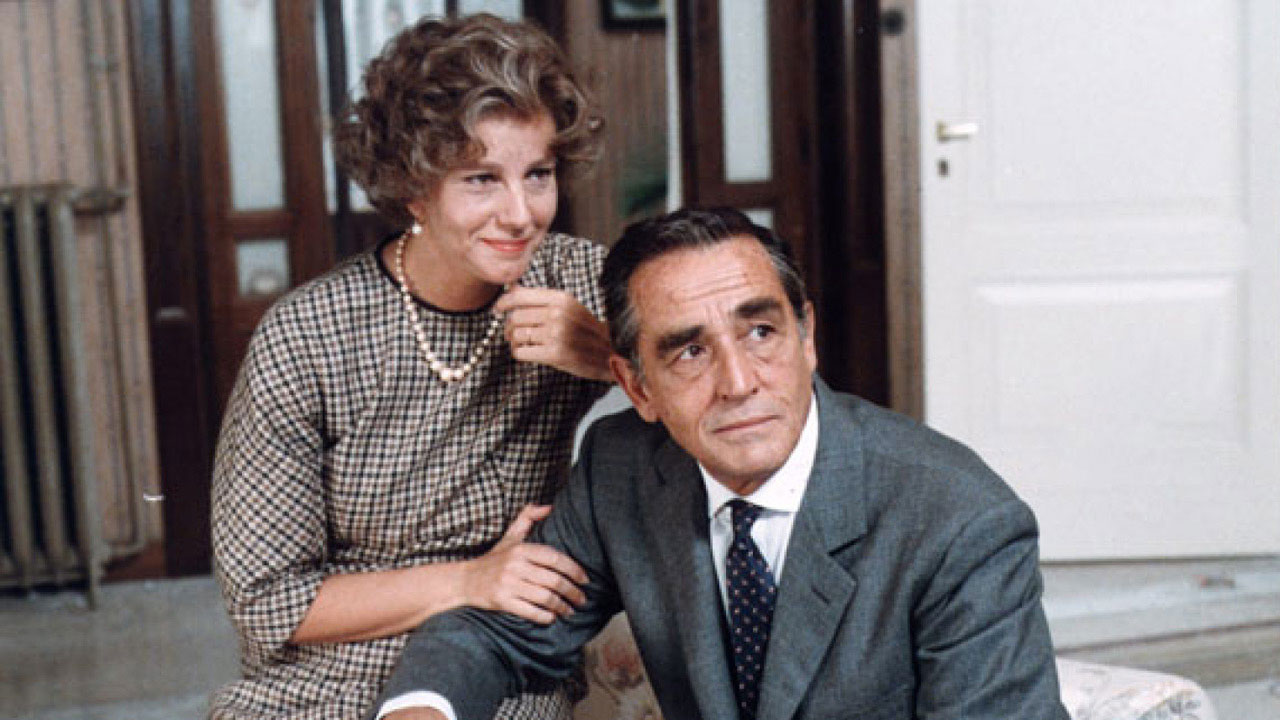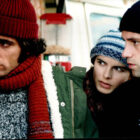Ettore Scola’s La Famiglia stands as a poignant testament to the intricacies of human relationships. Navigating the labyrinth of familial bonds with profound insight and sensitivity. Released in 1987, this Italian cinematic gem delves into the lives of the Valeri family. Painting a vivid portrait of love, loss, and resilience against the backdrop of post-World War II Italy.
At the heart of La Famiglia lies its rich tapestry of characters, each meticulously crafted to embody the multifaceted dynamics of a sprawling Italian family. Anchoring the ensemble cast is Vittorio Gassman, whose portrayal of Carlo, the patriarch grappling with the weight of tradition and modernity. Gassman infuses Carlo with a palpable sense of vulnerability, his stoic exterior masking a profound yearning for connection amidst the tumult of societal change.
Opposite Gassman is Fanny Ardant, luminous in her portrayal of Beatrice, Carlo’s steadfast yet enigmatic wife. Ardant imbues Beatrice with a quiet strength and unwavering resolve, her silent sacrifices and unspoken desires serving as the emotional bedrock of the Valeri family. Together, Gassman and Ardant form a mesmerizing duo, their on-screen chemistry suffused with a raw intensity that mirrors the ebb and flow of marital devotion.
As La Famiglia unfolds, we are introduced to a sprawling ensemble cast, each member emblematic of a distinct facet of Italian society. Stefania Sandrelli dazzles as Adriana, the vivacious matriarch whose irrepressible spirit belies a deep-seated longing for validation. Sandrelli infuses Adriana with a luminous charm and infectious zest for life. Her presence illuminating the screen with a radiant energy that belies the passage of time.
Alongside Sandrelli, Aldo Fabrizi delivers a tour de force performance as Gianni, the cantankerous uncle whose gruff exterior conceals a tender heart yearning for redemption. Fabrizi infuses Gianni with a rough-hewn authenticity, his weathered visage and world-weary gaze embodying the scars of a lifetime spent grappling with regret and remorse.
In addition to its stellar cast, La Famiglia also shines a spotlight on the vibrant landscapes of post-war Italy, capturing the essence of a nation in transition. From the sun-drenched shores of Sicily to the bustling streets of Rome, Scola’s camera roams with an unerring eye for detail. Capturing the subtle nuances of everyday life with painterly precision.
Indeed, it is through the juxtaposition of intimate character moments against the backdrop of sweeping vistas that La Famiglia truly comes to life. Inviting audiences on a journey of self-discovery and introspection. Whether lingering on the sun-kissed facades of Tuscan villas or the bustling piazzas of Naples, Scola imbues each frame with a sense of palpable nostalgia. Thus evoking a bygone era with a poignancy that lingers long after the credits roll.
In conclusion, Ettore Scola’s La Famiglia stands as a timeless masterpiece of Italian cinema, a haunting meditation on the enduring power of family. Through its rich tapestry of characters and evocative portrayal of post-war Italy, Scola invites us to confront the complexities of the human condition with unflinching honesty and grace. As we journey alongside the Valeri family, we are reminded of the enduring power of resilience, and the redemptive beauty of love in all its myriad forms.
Watch the whole movie on www.movieitalyplus.com
Read more articles here!






